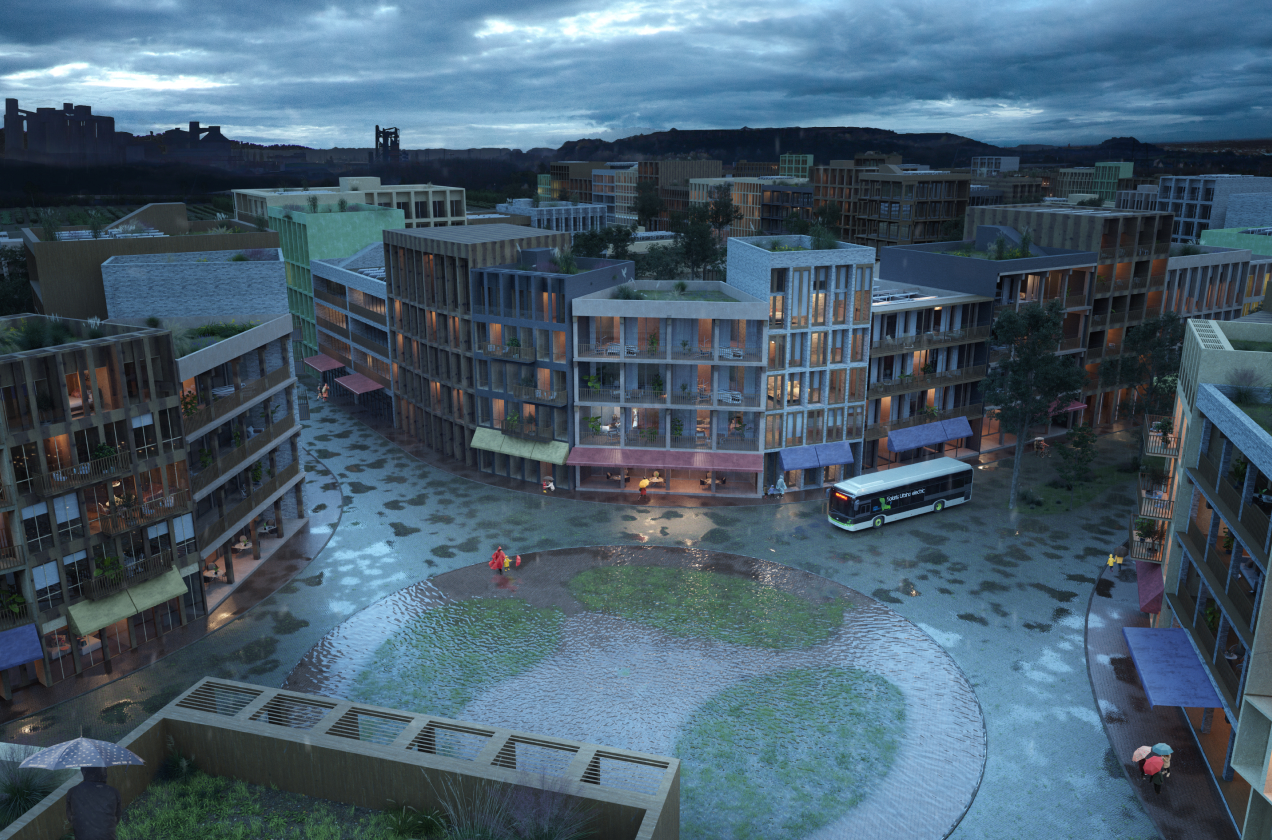Based on the results of the University of Luxembourg’s multidisciplinary team’s “Luxembourg 2050 – A Guide on Repairing Commercial Zones – Report Phase 3”, the Ministry of Energy and Spatial Planning, the Ministry of Mobility and Public Works and the Ministry of the Economy have assessed the possibilities of putting the developed ideas into practice by launching a pilot project for the conversion of the Foetz commercial zone.
Voir la carte
Reconversion of the Zone
Development of the Master Plan
Characteristics of the Study Area
Elements of the Conversion Project
Interministerial Working Group
Reconversion of the Zone
The aim of the project is to provide an example of how an economic and commercial area such as Foetz can be converted from a single-purpose space to a high-quality multifunctional use with more rational use of the available space (e.g. integration of housing, local shops, recreation areas, green spaces, etc.).
Development of the Master Plan
The project involves drawing up a master plan by identifying the urban planning, technical, legal and economic obstacles that may arise in the conversion of the area.
Characteristics of the Study Area
The study area Foetz is located in the municipality of Mondercange and the municipality of Schifflange and covers approximately 1.2km2 of which 61% are currently sealed either by buildings or by asphalte for roadsand car parks. These under-exploited areas have great potential for development, but require a more general concept to enable them to be activated.
Elements of the Conversion Project
The main elements of the project to convert Foetz into a multi-functional area can be summarised as follows:
- Projecting different regeneration and mixed-use scenarios for the underused areas;
- Integration of pedestrian and cyclist mobility, the A4 multimodal corridor with its fast tram, express cycle path and bus priority into the project;
- Intelligent management of vehicle parking and underused areas such as car parks;
- Identification of the infrastructure and service requirements needed to create a multi-functional area;
- Project planning and timing of the area of study.
Interministerial Working Group
An interministerial board, which also includes the two local authorities concerned, is responsible for monitoring the study, which was launched in June 2023.



